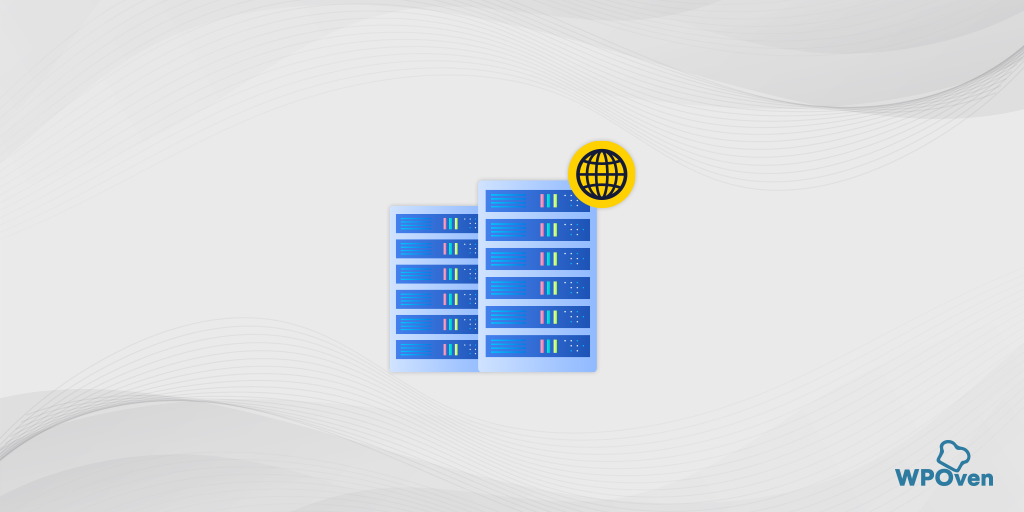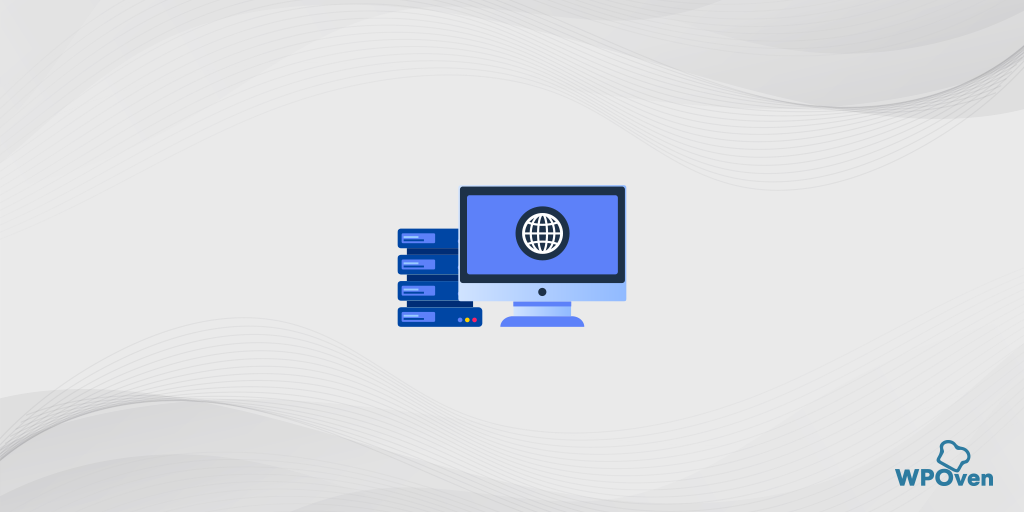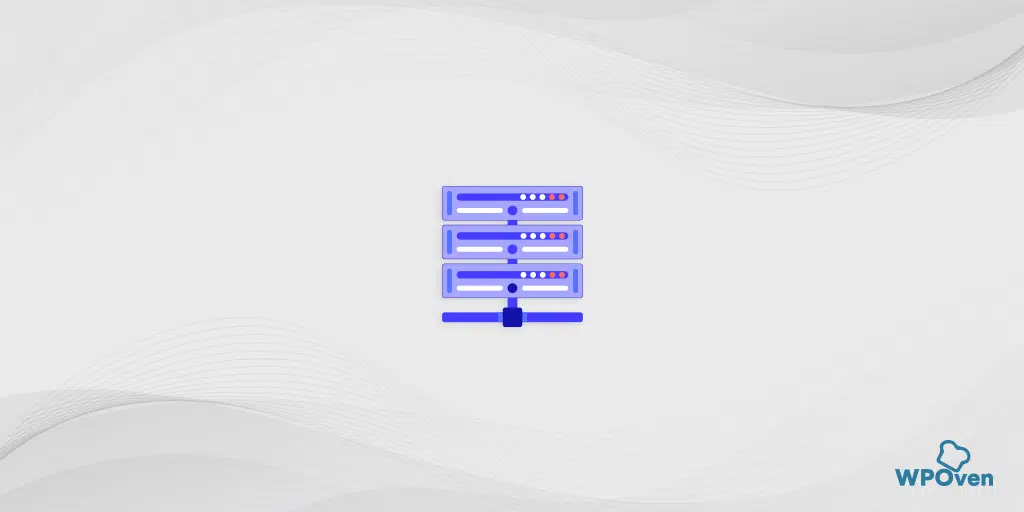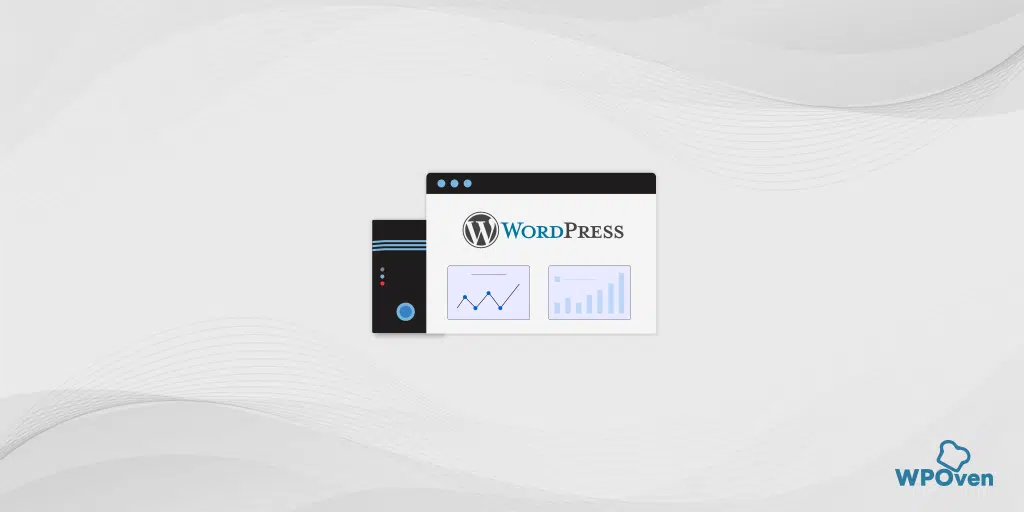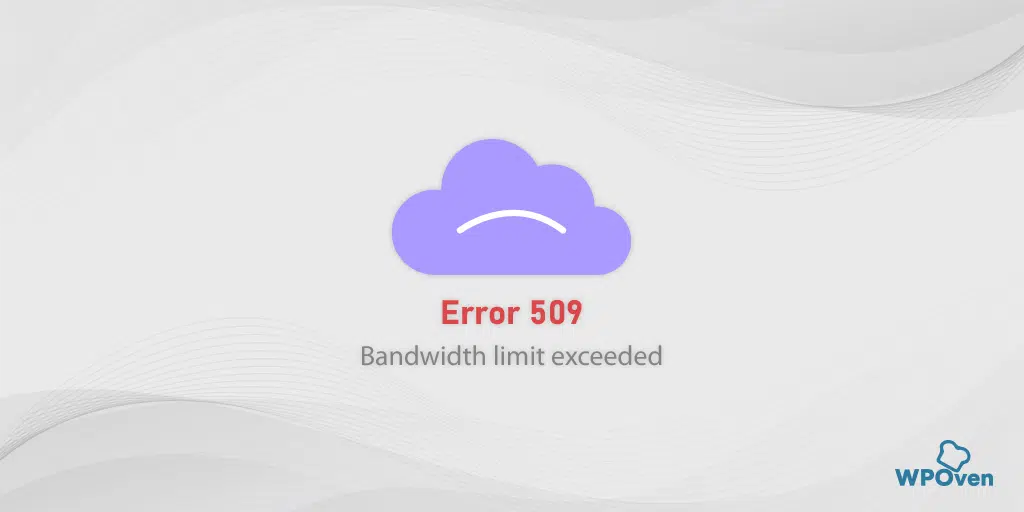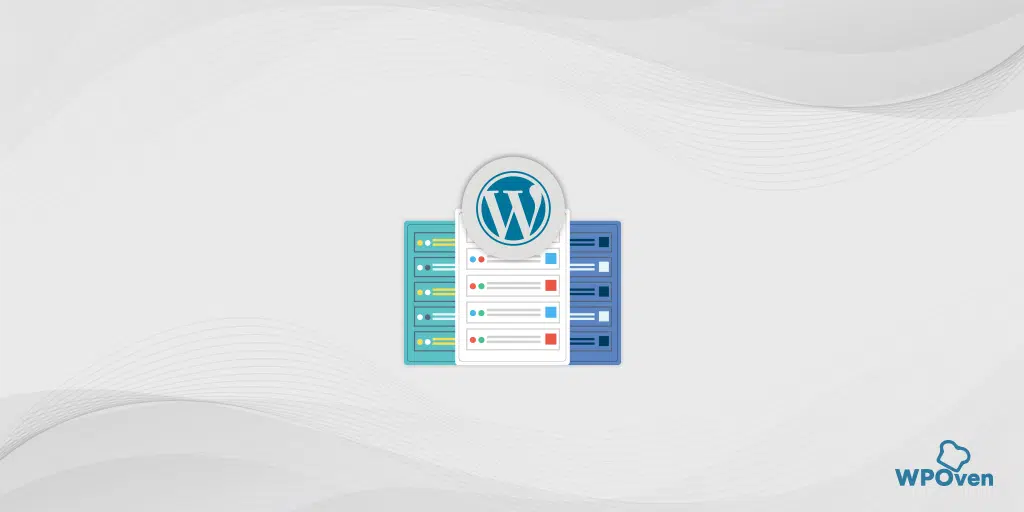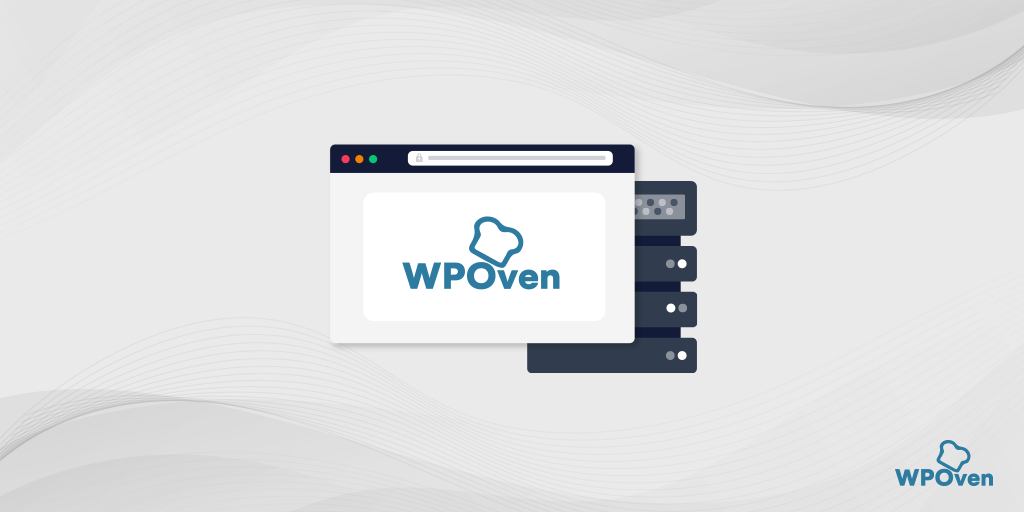Like any other beginner, you must have also chosen shared hosting at the very beginning to host a website. Why not? After all, it is one of the cheapest hosting plans available. But, when your website grows, there are certain things you should know about How to upgrade to a more efficient and reliable option.
There are plenty of Hosting services available and which you must have been wondering about What is a dedicated server? and why you should consider one?
The most obvious answer would be lies in the reasons for upgrading your website. For instance, suppose your website is currently on shared hosting, and suddenly your website shows a spike in web traffic which shows potential growth in the future. In this particular situation, it is better to upgrade your hosting service to a more reliable, efficient, and secure platform which is a dedicated server.
Dedicated servers are robust, have strong advanced security features, and are potentially fast as compared to other hosting plans. So, in this post, we will bring almost everything about dedicated servers that you should know and also make an ultimate comparison with the existing hosting plans that give you a clear view of this. Let’s dive in!
What is A Dedicated Server means?
A dedicated server is part of computer physical hardware in which the user gets allotted an entire server space and its resources to host a website. All the server resources such as bandwidth, storage, and processing power are exclusively made available for a client’s website. This facility commonly comes under a Dedicated hosting plan which is being offered by many web hosting service providers.
Generally, the majority of beginners start a website with shared hosting, but after some time when the website starts growing and web traffic starts to increase, the allocated bandwidth becomes unable to sustain and manage such huge traffic. Due to this, the website performance gets slowed down and the webpages start taking time to load.
At this moment, the best option for any client is either to upgrade to VPS or a dedicated server hosting (depending upon the budget that allows you). Due to this, your website performance can change dramatically and also improve page load speed.
Let us answer some questions that many clients usually have in their minds regarding a dedicated server.
Are Dedicated Servers Better?
As we have already mentioned earlier, through dedicated servers’ clients can improve their website performance, security, and page loading time. It is one of the best hosting services that any website must have. But the only downside of dedicated servers is that they are quite expensive as compared to other hosting services and usually beginners cannot afford them.
A dedicated server provides you with benefits such as:
- Better CPU performance
- Lowest Page loading time
- High bandwidth
- Advanced Security
- Complete Server resources
- Flexibility
- Customizations
- Better website performance
What Is the Difference Between a Dedicated Server and a Non-Dedicated Server?
To better understand what a dedicated server is, let us check out the main differences you will find between a dedicated server and a non-dedicated server.
Dedicated Server
- A dedicated server is a piece of computer physical hardware that businesses or organizations use to host their website.
- Dedicated servers are being offered by web hosting providers generally in their Managed/Unmanaged dedicated hosting plans.
- All the resources of a dedicated server will be used only by a single website.
- You will have better performance, page load speed, and a 100% uptime guarantee.
- No compromise in website speed, flexibility, and stability of the website.
- It provides next-level security features with advanced and latest cutting-edge technologies.
- You will have unique IP addresses.
- Can sustain higher web traffic.
- Quite expensive as compared to non-dedicated servers and usually the most suitable for businesses and organizations.
Non-Dedicated Server
- In non-dedicated servers (Shared and cloud), it is also made up of bare metal but the server’s same server space and its resources are either shared among the websites hosted on it or are virtually distributed into small servers for each website.
- Web hosting providers offer shared VPS, and cloud hosting plans in this segment.
- All the resources of a server will be shared or distributed among the websites that are hosted on the same server.
- No guarantee of website performance and uptime.
- You have to compromise on website speed, flexibility, and stability.
- Your website security will be at risk and vulnerable to getting compromised if any of the websites hosted on the same server are either hacked or compromised.
- You will share the same IP address with other websites.
- Cannot withstand high web traffic.
- Cheaper and cost-effective option and best for beginners.
Why do You Need A Dedicated Server?
As we have already mentioned earlier many times, a dedicated server is one of the most efficient, reliable, and strong options available in the web hosting market. However, you may still have a doubt about whether you need to have a dedicated server? To answer this question, check out these solid reasons to have a dedicated server for your website.
1. If Your Website Is Growing and Started Showing Spikes in Web Traffic
Websites that are hosted on non-dedicated servers (shared hosting) will eventually start to show poor traffic handling capabilities and downgrade in website performance. As a result of your, your website will have a higher bouncing rate and also incur a heavy loss in revenues.
Therefore, it is better to migrate or move your website to a more reliable and strong option before anything goes wrong with your website.
2. If Website Security Is Your Main Concern
Although website security should be every website’s top priority. But when considering websites that handle sensitive data or information should have best-in-class strong security measures to protect them from all sorts of attacks.
This sensitive data can be your email address, bank details, credit card information, or critical customer information, which you won’t like to get leaked into the public domain. Which ultimately can lead to cybercrimes, phishing, spamming, and other illegal online activities.
So, it becomes crucial to protect all this sensitive information from viruses, hackers, and other potential online risks.
When you host your website on a dedicated server, you will have a complete charge for your website security. You can customize and enhance the security level of your website by optimizing the features and file storage as per your choice. On top of that, you will have complete flexibility to implement the latest security measures on your website to make it more secure and viable.
3. If You Want to Enhance Website Performance and Speed
In online businesses, speed is money, and you won’t like to lose a hefty amount of revenue due to a lag in your website speed. A slow website can lead to higher bounce rates and poor website engagement, as a result, it will seriously impact your SEO and poor search engine rankings.
But with a dedicated server, you can stop this aspect of your website from happening to a greater extent.
Whereas on shared hosting, all the server resources are being used by all the websites hosted on the same server and as a result, your website becomes slow. But in a dedicated server, your website will be able to use all the resources of the server and bandwidth without sharing. As a result, your website performance will get enhanced and so its speed.
4. If You Like to Have Total Control of Your Server
One of the other reasons that you might choose a dedicated server is to have full control. As we have already mentioned in the above sections, how flexible is a dedicated server that gives clients complete freedom to optimize and configure their server without any restriction?
For instance, you are free to choose the server software you like (NGINX or Apache). In addition to that, you can upgrade or downgrade hardware and install the Operating system of your choice. Because of all of these features, a dedicated server can be the best option for web developers and for those who like to do customizations.
Now let us see how you can do the complete setup of a dedicated server.
How do I Set Up A Dedicated Server?
You can do the server setup either by hiring a technical expert or by yourself (if you know how things work and the technical aspects of servers). However, setting up a dedicated server by yourself can be challenging and more difficult since they require high technical expertise and multiple software downloads.
In case you hired an expert or third-party professional you will have additional benefits associated with them such as:
`1. They can easily customize the server as per your requirements.
2. Provide a team to maintain your server at regular intervals.
3. Provide you with an online interface.
4. And up to 100% uptime guarantee

What is A Dedicated Server in Gaming?
Apart from hosting websites on a dedicated server, you can also host online video games for a fast, stable, and reliable connection. As we have already mentioned earlier many times, a dedicated server has a lot to offer and it has an edge over other types of hosting in terms of processing power, security, storage capabilities, and memory. No matter how big or intense a Video game you play, the server will also have enough resources to run the game without any delay or lag.
Does A Dedicated Server need a GPU?
A dedicated server in gaming generally handles all the hosting functions rather than running the Gaming engine. Since the server does not render anything, it means it has nothing to do with GPU. Although the server has a high capacity of processing power and RAM, its main function is to give instructions to the client’s device to render Video games.
Is A Dedicated Server Better for Gaming?
For any online multiplayer video game, it has two main things, one is the host and another is the clients.
Whereas a host is a server whose main function is to transmit and receive data to all the players in the game and sync the whole game. And the clients are the players who are participating in the game and have no hosting functionalities.
Therefore, to run the entire game smoothly without any latency a host machine requires more processing power, bandwidth, storage capacity, and memory. In addition to that, if the host player has poor or weak internet connectivity, the game will start to lag, glitch and even crash during playtime.
With a dedicated server setup, things become a little different and the host is no longer a player, rather all the participants or players in the game are connected to a single server. Which has comparatively more processing power and the fastest connectivity than any game console? The admin will be able to:
- Configure the server to bring more smooth gameplay performance.
- The admin will be able to manage and decide how many participants/payers can join the game.
- Change the game settings and set up Game rules.
On top of that, dedicated hosting is also able to beat local hosts in terms of low latency and has become the best and ideal option for Online video games to host.
How Much Does a Dedicated Server Cost?
There is no exact answer you will find anywhere, for How much a dedicated server costs. It is because the cost varies from one hosting service provider to another and there are also a lot of other factors involved that influence the overall dedicated server pricing.
However, on average, the estimated cost of having a dedicated server can be $100 per month or even more. Usually, when you go for lower prices, you will provide with limited resources, features, and functionalities. But when you move to the higher price segment the resources and other features will start adding up.
But at WPOven, you can enjoy the power of a dedicated server at a very affordable price. Plans start at $16.61 per month and go up to $249.95 per month.
Therefore, the most suitable dedicated server for your website will be the only one that provides value-for-money features and is affordable to upgrade when your website starts growing.
Conclusion
If you have noticed that your website is unable to cope with an increase in web traffic, in this situation you must consider migrating your website to a dedicated server. This particular server will only host your website and allow only your website to use its resources. This way not only your website performance will get enhanced but it also reduce your website page loading time and enhance overall security.
In short, these are the following reasons why you should consider a dedicated server for your website.
- If your website traffic started to grow rapidly.
- If you want to boost your website speed (reduce page loading time).
- Improve Website security and protection from external threats.
- If you like to have total control over your server.
Apart from that, If anything more you would like to add about a dedicated server or if you have any questions regarding this, please do let us know in the comment section below!
Frequently Asked Questions
What is a dedicated server means?
A dedicated server is part of computer physical hardware in which the user gets allotted an entire server space and its resources to host a website. All the server resources such as bandwidth, storage, and processing power are exclusively made available for a client’s website.
What is an example of a dedicated server?
A dedicated server can also be referred to as a single computer that has been allotted to do some specific task. For instance, in a particular network, you can have a dedicated server or computer that lets you play online games, another computer that has been assigned for internet connections, and many more.
Why Do You Need a dedicated server?
The following are the main reasons why you need to have a dedicated server:
1. Better page loading time.
2. Reduces downtime significantly
3. Better security
4. Total controllability
5. Enhance website performance

Rahul Kumar is a web enthusiast, and content strategist specializing in WordPress & web hosting. With years of experience and a commitment to staying up-to-date with industry trends, he creates effective online strategies that drive traffic, boosts engagement, and increase conversions. Rahul’s attention to detail and ability to craft compelling content makes him a valuable asset to any brand looking to improve its online presence.

